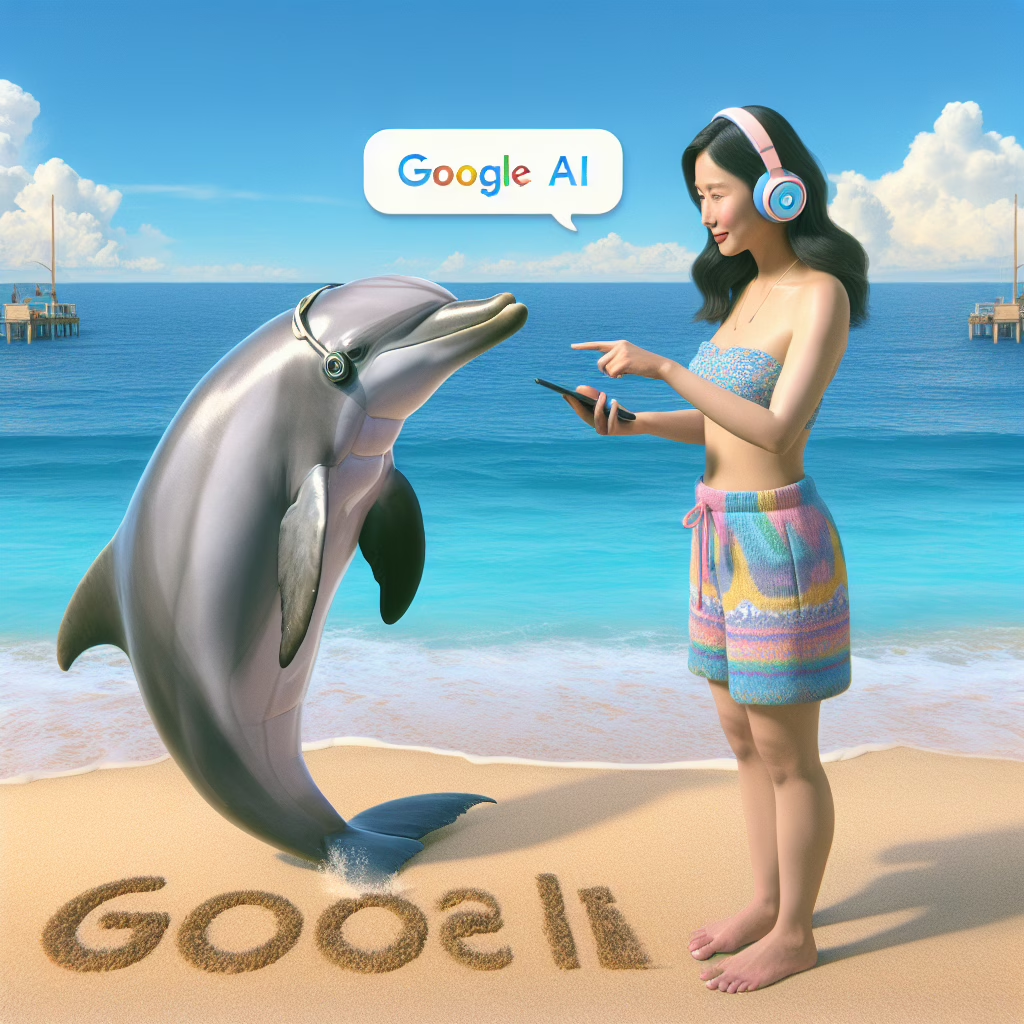Imagine a world where you can hold a conversation with a dolphin. Yes, you read that right! Thanks to Google’s latest AI model, this whimsical dream may soon flip from fiction to reality. The idea of chatting with our oceanic friends has always seemed like something out of a sci-fi movie or perhaps a clever children’s book. Yet, here we are, on the brink of creating a bridge between human and dolphin communication, all thanks to some cutting-edge technology!
Understanding Dolphin Speak: A New Era of Communication
Dolphins are known for their complex social structures and remarkable intelligence. They communicate using a variety of clicks, whistles, and body movements, making them the chatterboxes of the sea. Scientists have long been fascinated by their ability to convey emotions and information through these sounds. Now, with Google’s new AI model, we might finally decode their language and share some fishy jokes!
This AI model utilizes advanced machine learning techniques that analyze vast amounts of data collected from dolphin vocalizations. Think of it as the Rosetta Stone for marine mammals—only instead of ancient Egyptian hieroglyphics, we have squeaks and squawks! By processing these sounds through sophisticated algorithms, researchers aim to grasp the nuances of dolphin communication.
Diving Deep into AI Technology
Let’s talk tech! The new Google AI model employs neural networks that mimic the way human brains process information. These networks learn from examples—lots and lots of examples. So, if you’ve ever felt overwhelmed by the sheer amount of cat videos online, just imagine the ocean of data available for dolphins! Researchers feed the AI countless recordings of dolphin calls and their corresponding behaviors, allowing the system to learn patterns and meanings.
Once trained, this model could potentially translate dolphin sounds into human language or even generate responses that dolphins might understand. Who knows? You might find yourself in a lively debate about the best type of seaweed over a cup of coffee with Flipper!
The Potential Impact on Marine Conservation
But wait—there’s more than just fun conversations on the horizon! Understanding dolphin communication could have significant implications for marine conservation efforts. By deciphering their calls, researchers can gain insights into their social structures and behaviors, which is crucial for protecting these magnificent creatures.
- Identifying distress calls related to threats like pollution or habitat loss will allow conservationists to act swiftly.
- Understanding dolphin social interactions could reveal how they respond to environmental changes.
- Imagine if we could ask dolphins directly about their experiences in changing environments—talk about getting firsthand knowledge!
A Splashy Future Awaits
While we’re still quite a distance from having full-fledged conversations with dolphins (perhaps they’ll be our future therapists?), this technology opens up a pool of possibilities for both science and entertainment. Who wouldn’t want to join a virtual chat room filled with dolphins discussing their day?
The idea also raises questions about how we perceive communication across species. If we can talk to dolphins through AI, what other animals might be next? Perhaps we’ll have a parrot who gives life advice or a wise old tortoise offering pearls of wisdom!
Final Thoughts: Making Waves in Communication
As we look forward to this exciting development in Google AI technology and marine biology, it’s essential to remember that understanding animals better can lead us to treat them with more respect and care. So, let’s dive into this adventure together—who knows what fascinating revelations await us beneath the waves?
We invite you to share your thoughts on this groundbreaking technology! Do you think talking to dolphins is just a splash in the pan or an ocean-sized opportunity? Let us know in the comments below!
Special thanks to TechRadar for inspiring this article! Check out our other related articles such as OpenAI is building a social network and Tax Day scam warning – experts say scammers are using AI-generated voices to impersonate IRS for more insights into the evolving world of AI.

